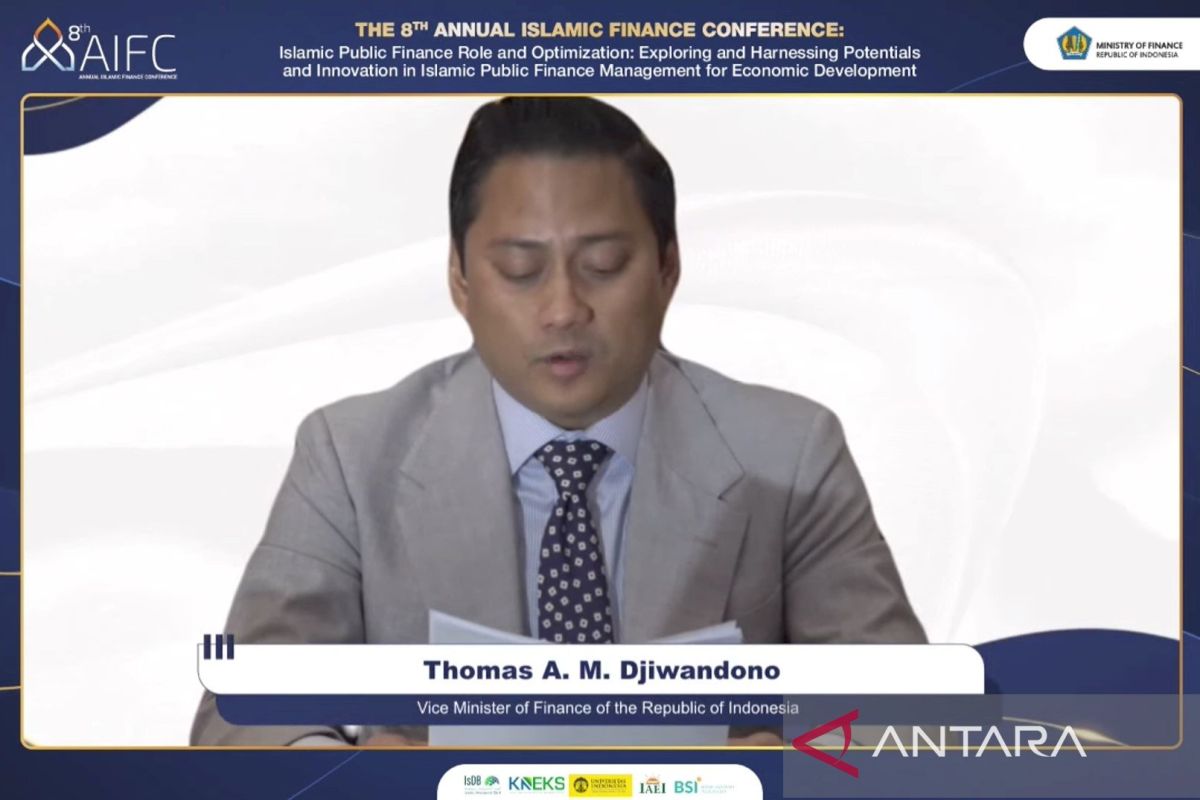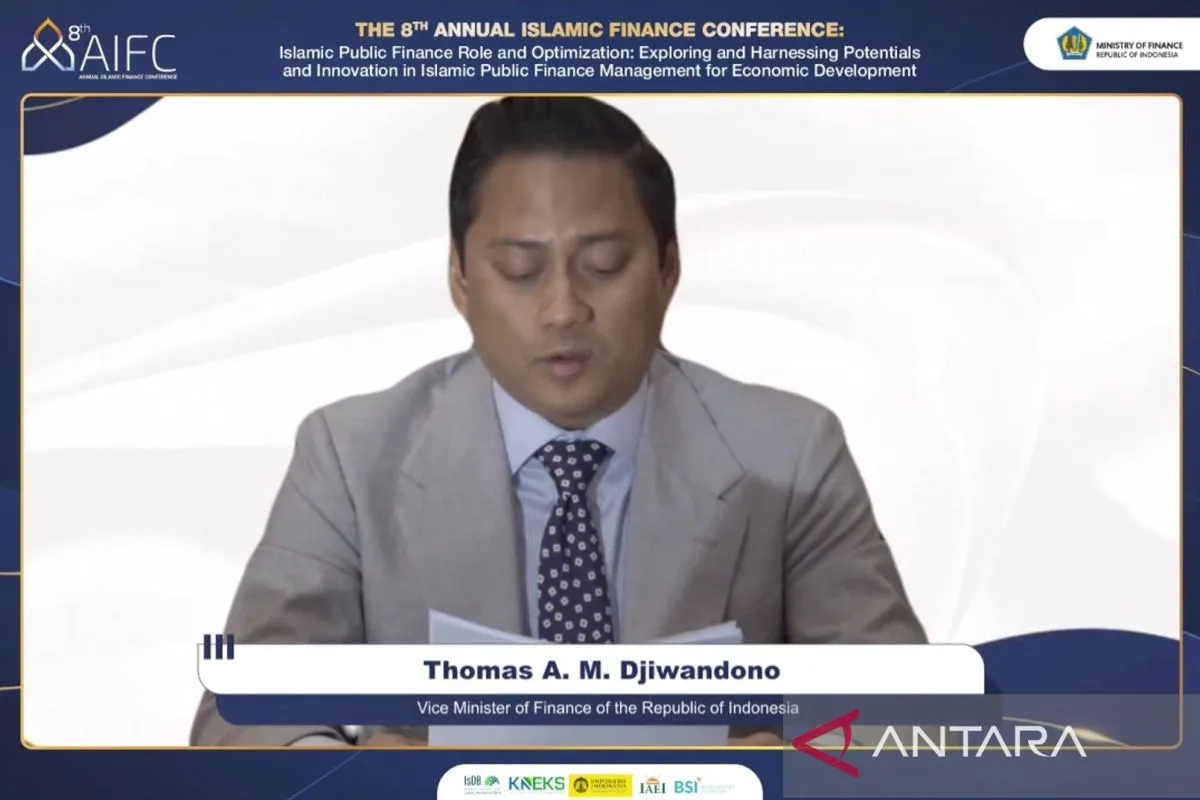Jakarta (ANTARA) - Deputy Minister of Finance (Wamenkeu) II, Thomas Djiwandono, has said that Indonesia has managed to integrate the sharia economy and Islamic public finance principles with mainstream or conventional economic policies.
“Indonesia has made substantial progress in incorporating Islamic public finance principles into mainstream economy policies,” Djiwandono highlighted at a video conference broadcast here on Thursday.
He said that by collaborating with various stakeholders, the government is actively promoting the development and integration of Islamic finance principles into the national fiscal policy framework. He noted that the attempt aims to ensure sustainable and inclusive economic development as well as improve social welfare.
“In regulatory and institutional framework, the government, through the collaboration of the Finance Ministry, the National Sharia Board (DSN), and the Financial Services Authority (OJK), has developed a robust regulatory framework to support the growth of Islamic finance,” he said.
He added that Indonesia has devised and enforced various laws based on Islamic economic principles, such as the management of sharia banking, zakat, and waqf.
He said that the principles of the sharia economy have also been accommodated in Law Number 4 of 2023 concerning the Development and Strengthening of the Financial Sector (UU P2SK), which seeks to modernize and adapt government regulations to the development of the current economic system.
“In addition, Indonesia has established the National Committee for Sharia Economy and Finance (KNEKS) and the Indonesian Association of Islamic Economists (IAEI) to accelerate the development and innovation of Islamic economy and finance, including Islamic public finance,” he pointed out.
Baca juga: Wapres: Bank syariah wajib sesuaikan dengan keuangan berkelanjutan
According to the Islamic perspective, public financial policies should encourage investment and productive activities that create real value for society, Djiwandono said.
He added that public spending and investment must support development projects that contribute to sustainable economic growth and climate change mitigation, such as the development of renewable energy, green economy, and disaster-resilient infrastructure.
To fulfill the funding needs for the projects, the government has issued several sharia financial instruments in recent years, he noted. In 2018, Indonesia became the first country to issue green sukuk to raise funds for environmentally friendly and sustainable projects related to energy, reforestation, and agriculture.
Later, the government launched the SDGs (Sustainable Development Goals) Government Securities Framework in 2021 worth more than US$10 billion (Rp152.68 trillion, exchange rate on Thursday = Rp15,268) for the development of renewable energy and waste management.
Baca juga: Food, textiles among priorities of circular economy plan: govt
Meanwhile, for social purposes, the government issued Cash Waqf Linked Sukuk --- a cash waqf investment in state sukuk, whose returns were distributed by nazhir (a managerial body for waqf funds and activities) -- to finance social programs and community economic empowerment.
The issuance of sukuk in 2020 helped raise US$65 million (Rp992.42 billion) from more than 3 thousand waqf contributors.
“The government also regularly issues retail sukuk to tap into domestic retail investors. This provides a sharia-compliant investment option that also helps fund national development projects and contributes to the deepening of Indonesia’s financial sector,” Djiwandono said.


